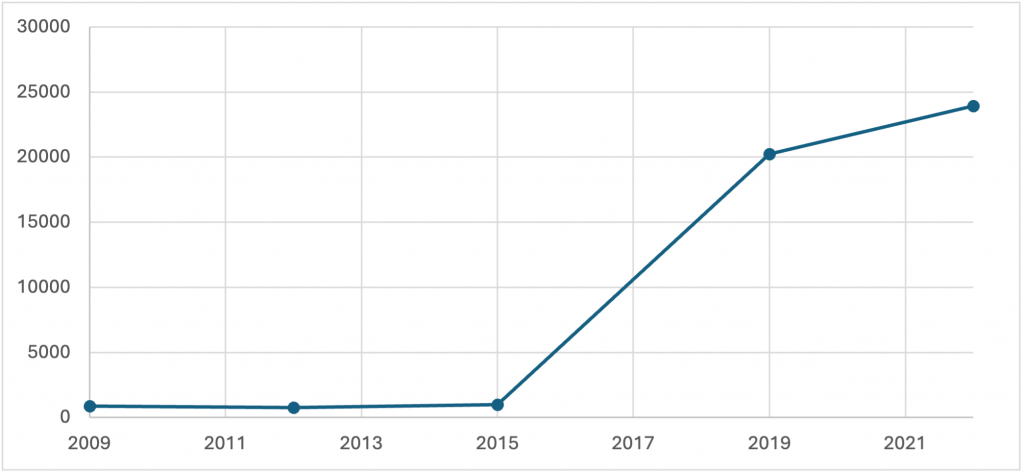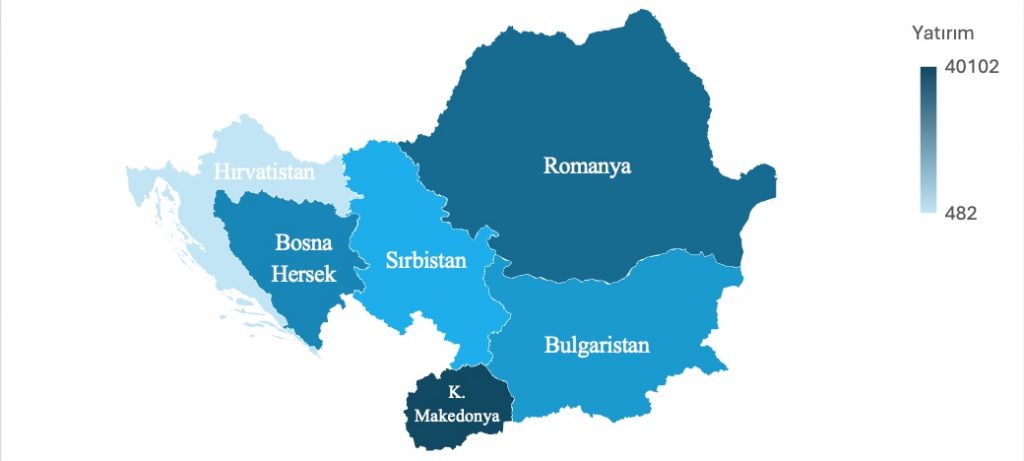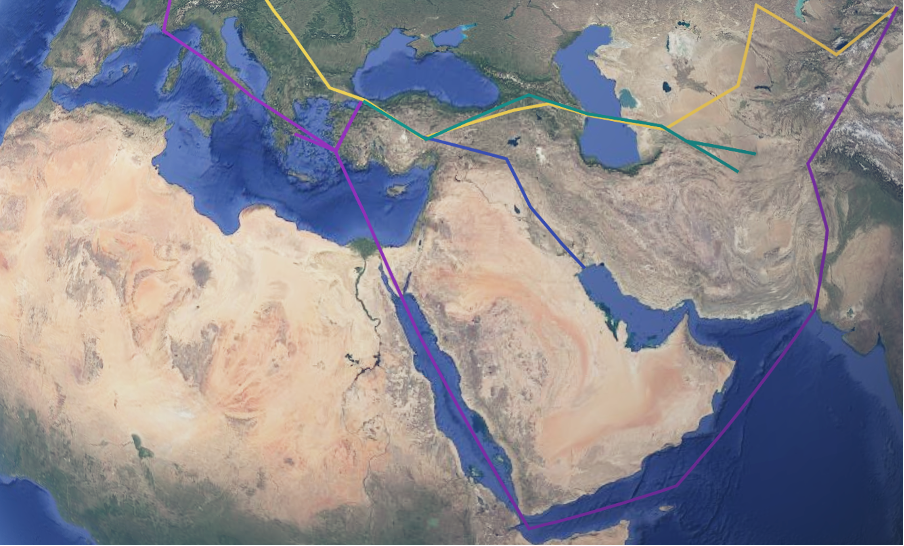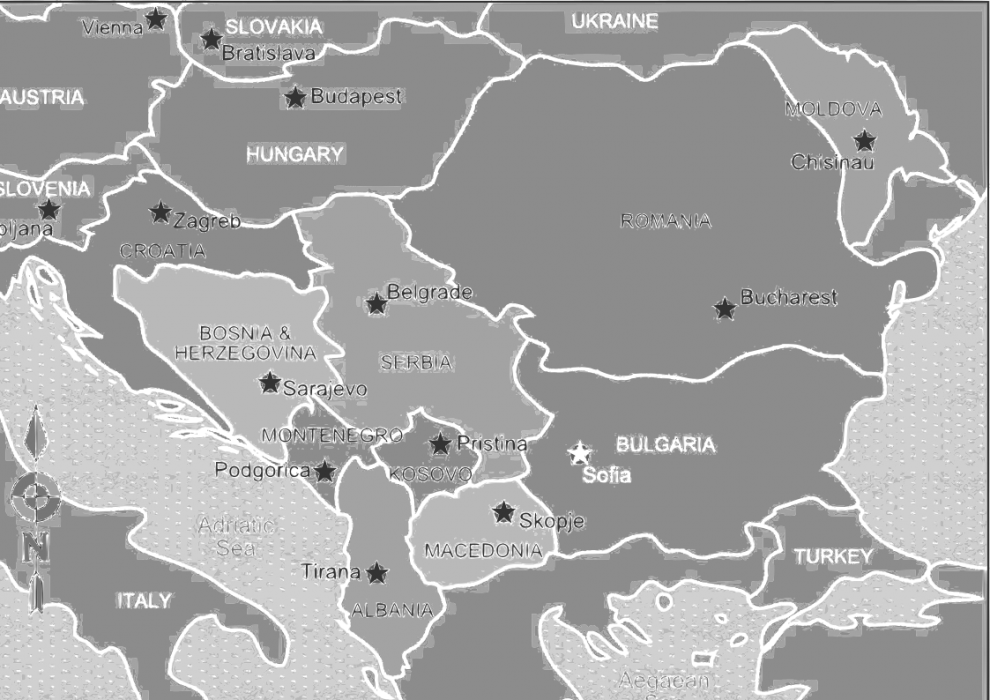President Erdoğan’s Balkans tour in mid-October is crucial for Turkey’s influence in the region, focusing on cooperation and economic benefits.
President Erdoğan’s Balkans tour in mid-October is crucial, with Turkey’s moves closely watched in the region. The breakup of Yugoslavia planted seeds now sprouting for Turkey. The Balkans were described as a forgotten heritage, separated by borders, but Turkey aims to revive this connection. Turkish presence in the region has grown significantly through investments, supporting conflict resolution and prosperity. This strategy has led to diplomatic and economic benefits, shaping Turkey’s grand strategy. The Balkans are vital for trade routes connecting Turkey to Europe. Recent tensions in the Balkans highlight Turkey’s efforts to maintain stability and peace through active diplomacy. President Erdoğan’s visits signal Turkey’s commitment to the region beyond just being a gateway, focusing on cooperation and partnerships. Turkey’s engagement in the Balkans aligns with its vision of the “Turkish Century”, contributing to regional peace and prosperity.
President Erdoğan’s tour of the Balkans in mid-October is of great importance. Although the tour is not much talked about in the Turkish press, Turkey’s steps are closely followed among the Balkan countries and more than ever, all eyes are on Ankara. From Turkey’s perspective, the seeds that were sown after the breakup of Yugoslavia have now begun to sprout. In this article, I will try to evaluate Turkey’s game-changing moves in the Balkans within the framework of the “Turkish Century” vision.
Reclaiming the Forgotten Heritage
It should not be absurd to consider the Balkan geography as Turkey’s lost heritage. Communities living together just a hundred years ago were separated from each other by the West’s border-based nation scalpel. After the European capitals welcomed this separation and embarked on a struggle for influence, grief and tears were never absent in the geography. Turkey, which has always embraced the debt that history has placed on its neck, reached out to this geography again as soon as it established the institutions of the new Republic in 1923. The Balkan Treaty established in 1934 was a manifestation of this intention. However, this initiative did not last long due to the forces and impositions imposed by the international conjuncture. After World War II, Turkey aimed for peace and prosperity in the region, this time with the Balkan Pact, but again the goal was not achieved. Even though the Balkan heritage was included in the textbooks, the camp ideology of the Cold War always hindered Turkey’s aspirations, until the Cold War ended and opened a great window of opportunity for Turkey. Turkey entered the region through the Turkish Cooperation and Development Agency (TIKA) and signed friendship, good neighborliness and cooperation agreements with Albania, Bulgaria, Romania and Macedonia. However, the Bosnian War, which broke out between 1992 and 1995, disrupted Turkey’s policy. Unable to break its defensive reflexes, Turkish foreign policy provided military and humanitarian aid in Bosnia during this period, but sustainability and permanence could not be achieved in relations with Balkan countries. It was only in the 21st century that this legacy could be embraced and revived.
From the Gateway to Europe to Regional Ownership
After Lebanon, the Western world defined its new post-Lebanon playing field as “the Balkans” and the term “Balkanization” entered the international relations literature with the dissolution of Yugoslavia. The Srebrenica Massacre and the genocide of Muslims, one of the greatest tragedies in the history of humanity, became an issue that the West glossed over in the context of “fragmentation” and “struggle for influence”. “Humanity” and ‘morality’ were the motto of Turkish foreign policy at that time as well, as well as an unavoidable responsibility that history had placed on Turkey’s shoulders. While the Balkan geography was referred to as “the gateway to Europe” in the writings of that period, the foreign policy approach that changed in 2002 paved the way for the emergence of the current situation. For Turkey, the Balkans are no longer a gateway, but rather a part of its identity.
Graph 1: Turkey’s Direct Investment in the Balkans, (Million Dollars, 2009 – 2022)

Source: IMF Harmonized Direct Investment Survey, 2022.
According to the data in Chart 1, Turkish investments, which amounted to USD 873 million in 2009, have increased 26.6 times today and exceeded 23.2 billion in 2022. The Balkans is no longer just a gateway; it is the clearest reflection of the fact that Turkey is a production base. The distribution below is the manifestation of Turkey’s investment strategy on the ground.
Chart 2: Distribution by Countries, (Million Dollars, 2009 – 2022)

Source: IMF Harmonized Direct Investment Survey, 2022.
A look at the countries where investments are concentrated reveals Turkey’s unique strategy. By investing more in conflict areas, Turkish companies contribute to conflict resolution processes by supporting prosperity in these countries. The fruits of this strategy, which is pursued through economic policies, manifest themselves in the field of diplomacy. For example, Turkey’s constructive steps in the Balkans are the main motivation behind Albanian Prime Minister Edi Rama addressing President Erdoğan as “Brother” at the opening ceremony of the Ethem Bey Mosque restored by TIKA in Tirana in January 2022.
“Century of Turkey” Vision and the Balkans
Turkey no longer has the defensive reflexes of the 1990s, nor can it be characterized as a medium-sized state. Turkey has become a country that can put forward its own grand strategy and achieve results on the ground and at the table in line with this strategy. The biggest reflection of Turkey’s grand strategy lies in its ability to read the redistribution of roles in world politics. The hottest topic on the agenda in recent years is “trade routes” and “connectivity”. In this context, the Balkans are of vital importance for Turkey. The famous saying attributed to Süleyman Demirel, “From the Adriatic to the Great Wall of China” is now at the center of the most debated topic in global trade.
Map 1: Trade Routes Through Turkey

Source: Republic of Turkey Ministry of Trade – Google Earth.
As Map 1 clearly shows, in the Turkish Century, Turkey is located at the crossroads of trade routes. While much media attention has been focused on the Middle East, particularly the security operations in Syria and Iraq, the Caucasus and the Middle East are the geographies through which these routes reach Turkey, while the route to their final destination in Europe passes through the Balkans. For Turkey, stability in the Balkans is as important as stability in the Middle East. We need to closely follow the developments in the Balkans in recent years. Some people seem to be disturbed by the climate of peace and tranquility that Turkey contributes to in the Balkans. The uprising by Albanians in the north of Kosovo in 2023 and the armed demonstrations by Serbs in Bosnia in 2024 demanding to be part of Serbia again show that some actors are uncomfortable with the cooperation and partnerships established in the region. In this context, President Erdoğan’s meeting with the President of the State Council of Bosnia and Herzegovina Becirovic on September 14 and his Balkans tour on October 10-11, 2024 are valuable. Turkey is using all diplomatic means at its disposal to defuse rising tensions in the region because the Balkans also means Turkey.
Turkey’s presence in the Balkans is gaining new momentum with President Erdoğan’s recent visits. The embrace of historical heritage and the increase in economic investments show that Turkey is acting in the Balkans as a part of the region, not just a gateway. Turkey is contributing to the peace process in the Balkans by bringing stability and prosperity to the region in line with its vision of the “Turkish Century”. Especially the developments in 2024 emphasize Turkey’s efforts to reduce tensions in the region through active diplomacy, and this strategy has the potential to be a game changer in world politics.






